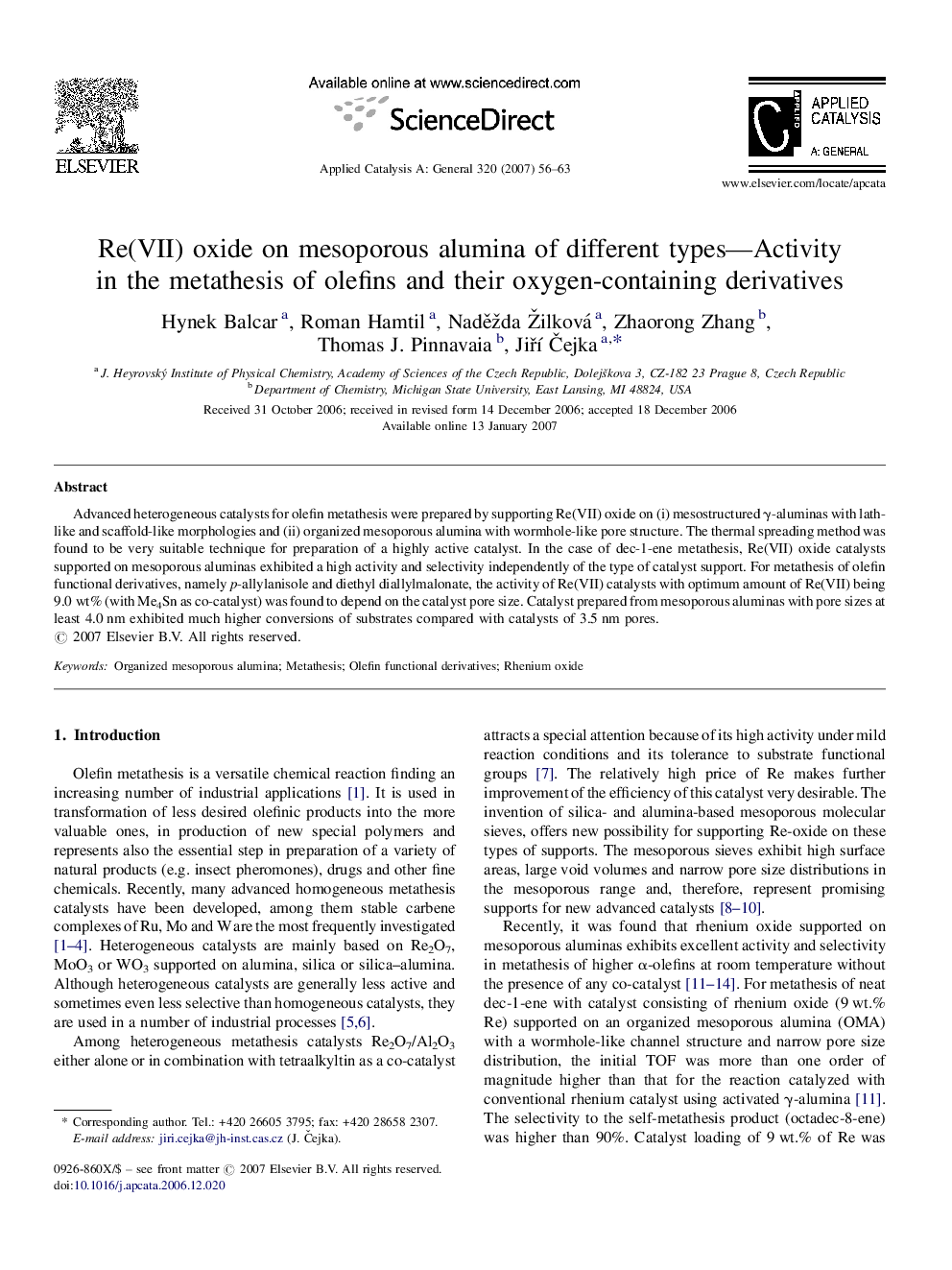| Article ID | Journal | Published Year | Pages | File Type |
|---|---|---|---|---|
| 44418 | Applied Catalysis A: General | 2007 | 8 Pages |
Advanced heterogeneous catalysts for olefin metathesis were prepared by supporting Re(VII) oxide on (i) mesostructured γ-aluminas with lath-like and scaffold-like morphologies and (ii) organized mesoporous alumina with wormhole-like pore structure. The thermal spreading method was found to be very suitable technique for preparation of a highly active catalyst. In the case of dec-1-ene metathesis, Re(VII) oxide catalysts supported on mesoporous aluminas exhibited a high activity and selectivity independently of the type of catalyst support. For metathesis of olefin functional derivatives, namely p-allylanisole and diethyl diallylmalonate, the activity of Re(VII) catalysts with optimum amount of Re(VII) being 9.0 wt% (with Me4Sn as co-catalyst) was found to depend on the catalyst pore size. Catalyst prepared from mesoporous aluminas with pore sizes at least 4.0 nm exhibited much higher conversions of substrates compared with catalysts of 3.5 nm pores.
Graphical abstractHeterogeneous catalysts for metathesis of olefins and their oxygen-containing derivatives were prepared by supporting Re(VII) oxide on (i) mesostructured γ-aluminas with lath-like and scaffold-like morphologies and (ii) organized mesoporous alumina with wormhole-like pore structure.Figure optionsDownload full-size imageDownload as PowerPoint slide
